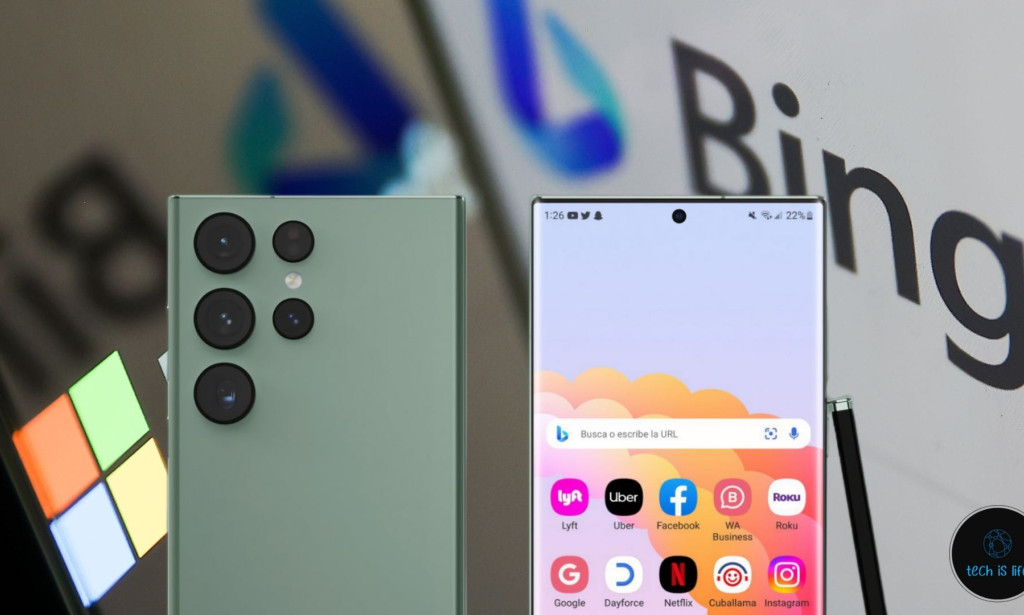While Samsung made Google its default search engine in 2009, a move that was seen as a major milestone in the tech world. This decision was made after the company saw the need to provide its users with a seamless experience when it came to searching for information online. By partnering with Google, Samsung was able to provide its customers with access to one of the world's most powerful search engines, giving them access to a wealth of information at their fingertips.

Samsung considers replacing Google with Microsoft's Bing as default search engine
Since then, the partnership between Samsung and Google has only grown stronger. Today, Google is the default search engine on most Samsung devices, including the popular Galaxy smartphone line. This has greatly benefited Google as it has helped to expand its user base and increase its revenue stream.
Samsung's decision to adopt Google as its search default has also had a significant impact on the search engine industry as a whole. With one of the world's largest tech companies backing Google, other companies have had to step up their game to remain competitive. This has led to the development of new and innovative search engines that offer unique features and capabilities.

When Samsung announced its decision to replace Google with Microsoft’s Bing as the default search engine on its devices, it sent shockwaves through the tech industry. The move, if implemented, could put $3 billion in annual revenue at stake. This would be a significant blow to Google, which has long held a dominant position in the search engine market.
Google's concerns about AI competitors were triggered after OpenAI's ChatGPT chatbot was unveiled last year. Since then, Google has been building its own artificial intelligence products and projects, in a bid to stay ahead of the competition. However, the threat from Samsung is the first potential crack in Google's search business, which was worth $162 billion last year.

In response, Google is now prioritizing gaining control of the next breakthrough technology in the industry. The company has even released its Bard chatbot, which uses machine learning to simulate conversations with users. Additionally, more than 160 Google employees are working on Project Magi, which will add features to the existing search engine.
While plans for the new search engine are still in the early stages, it will be interesting to see how Google's search business evolves in the coming years. With the rise of artificial intelligence and increasing competition from companies like Samsung, Google will need to stay on top of its game if it wants to remain the dominant player in the search engine market.

The battle between Android and iOS has been raging for years, with each operating system having its strengths and weaknesses. Android, developed by Google, is an open-source operating system that allows for greater customization and flexibility. In contrast, iOS, developed by Apple, is a closed system that is known for its user-friendly interface and seamless integration with Apple devices.
One of the key differences between the two operating systems is the level of control that users have over their devices. With Android, users have the ability to install apps from sources other than the official app store, while iOS restricts app installation to the official app store. This gives Android users greater freedom and flexibility, but it also makes the platform more vulnerable to security threats.
Another major difference between the two operating systems is the range of devices that they are available on. Android is used by a wide range of manufacturers, including Samsung, LG, and Huawei, while iOS is exclusively available on Apple devices. This means that Android has a much larger user base, but iOS users are generally more loyal and spend more money on apps and other digital content.
In terms of design, Android and iOS have their own unique styles. Android is known for its customizable home screen and widgets, while iOS is famous for its sleek, minimalist design. Each operating system has its own strengths and weaknesses, and ultimately it comes down to personal preference.
Despite these differences, both Android and iOS are constantly evolving, with new features and updates being released on a regular basis. Ultimately, the decision of which operating system to use comes down to personal preference and individual needs. Whether you prefer the flexibility and customization of Android or the seamless integration of iOS, both platforms have something to offer.
Also Read
- How to measure your heart beat on your android phone
- Smartphone Showdown: Samsung Galaxy S23 Ultra vs. iPhone 14 Pro Max
- Google Pixel 6 proprietors who move up to Android 13 can never return


You must be logged in to post a comment.